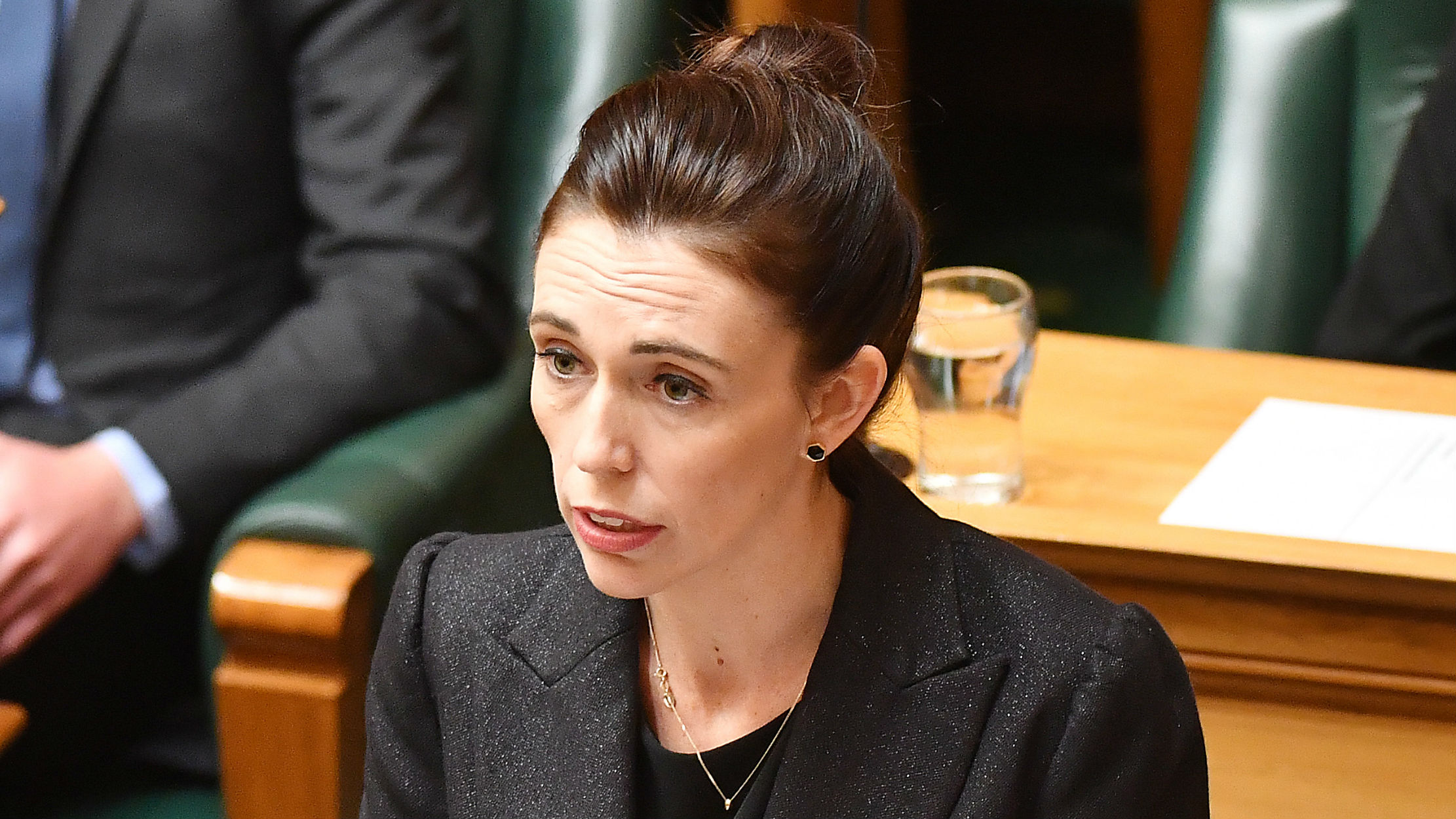Should mass murderers go unnamed?
New Zealand’s PM Jacinda Ardern vows never to say name of mosque massacre suspect

A free daily email with the biggest news stories of the day – and the best features from TheWeek.com
You are now subscribed
Your newsletter sign-up was successful
The prime minister of New Zealand has pledged never to say the name of the gunman accused of killing 50 people in attacks on two mosques in Christchurch last week.
Dozens more people were injured in the mass shootings at the at Al Noor and Linwood mosques during prayertime on Friday.
The suspect, Brenton Tarrant, a 28-year-old Australian and self-described white supremacist, has not asked for name suppression in court.
The Week
Escape your echo chamber. Get the facts behind the news, plus analysis from multiple perspectives.

Sign up for The Week's Free Newsletters
From our morning news briefing to a weekly Good News Newsletter, get the best of The Week delivered directly to your inbox.
From our morning news briefing to a weekly Good News Newsletter, get the best of The Week delivered directly to your inbox.
But addressing New Zealand’s parliament today, Prime Minister Jacinda Ardern said: “He sought many things from his act of terror, but one was notoriety - that is why you will never hear me mention his name.
“I implore you, speak the names of those who were lost rather than the name of the man who took them. He is a terrorist. He is a criminal. He is an extremist. But he will, when I speak, be nameless.”
Ardern is not alone in her stance. In the two decades since the Columbine High School massacre, “a growing movement” has urged news outlets to refrain from naming mass murderers and fuelling “celebrity-style coverage that only encourages future attacks”, reports USA Today.
Adam Lankford, a criminologist at the University of Alabama, says: “A lot of these shooters want to be treated like celebrities. They want to be famous. So the key is to not give them that treatment.”
A free daily email with the biggest news stories of the day – and the best features from TheWeek.com
Lankford argues that many attackers are trying to outdo previous killers by amassing higher death tolls, and that media coverage serves only to encourage copycats.
Some in the media have taken note. CNN’s Anderson Cooper refused to name the shooter who opened fire on a gay nightclub in Orlando in 2016.
However, the Los Angeles Times criticised Cooper’s decision as “a betrayal of a journalist’s obligation to share relevant facts with his readers or viewers”.
The newspaper noted that a 2014 study from Arizona State University and Northeastern Illinois University found “significant evidence that mass killings involving firearms are incented by similar events in the immediate past”.
But it argued that it was not clear if the crucial aspect was the reporting of the killer’s name or the detail of their crimes, the latter of which “would require much more extreme limits on news coverage”.
There is no doubt in the mind of Tom Teves, whose son Alex was killed in the 2012 Aurora cinema shooting. Together with his wife, Caren, Teves is leading the No Notoriety movement, which encourages media to stick to reporting relevant facts rather than irrelevant biographical details about killers.
He says: “We never say don’t use the name. What we say is use the name responsibly and don’t turn them into anti-heroes. Let’s portray them for what they are - they’re horrible human beings that are completely skewed in their perception of reality, and their one claim to fortune is sneaking up behind you and shooting you.”
-
 Why are election experts taking Trump’s midterm threats seriously?
Why are election experts taking Trump’s midterm threats seriously?IN THE SPOTLIGHT As the president muses about polling place deployments and a centralized electoral system aimed at one-party control, lawmakers are taking this administration at its word
-
 ‘Restaurateurs have become millionaires’
‘Restaurateurs have become millionaires’Instant Opinion Opinion, comment and editorials of the day
-
 Earth is rapidly approaching a ‘hothouse’ trajectory of warming
Earth is rapidly approaching a ‘hothouse’ trajectory of warmingThe explainer It may become impossible to fix
-
 Epstein files topple law CEO, roil UK government
Epstein files topple law CEO, roil UK governmentSpeed Read Peter Mandelson, Britain’s former ambassador to the US, is caught up in the scandal
-
 Iran and US prepare to meet after skirmishes
Iran and US prepare to meet after skirmishesSpeed Read The incident comes amid heightened tensions in the Middle East
-
 Israel retrieves final hostage’s body from Gaza
Israel retrieves final hostage’s body from GazaSpeed Read The 24-year-old police officer was killed during the initial Hamas attack
-
 China’s Xi targets top general in growing purge
China’s Xi targets top general in growing purgeSpeed Read Zhang Youxia is being investigated over ‘grave violations’ of the law
-
 Panama and Canada are negotiating over a crucial copper mine
Panama and Canada are negotiating over a crucial copper mineIn the Spotlight Panama is set to make a final decision on the mine this summer
-
 Why Greenland’s natural resources are nearly impossible to mine
Why Greenland’s natural resources are nearly impossible to mineThe Explainer The country’s natural landscape makes the task extremely difficult
-
 Iran cuts internet as protests escalate
Iran cuts internet as protests escalateSpeed Reada Government buildings across the country have been set on fire
-
 US nabs ‘shadow’ tanker claimed by Russia
US nabs ‘shadow’ tanker claimed by RussiaSpeed Read The ship was one of two vessels seized by the US military